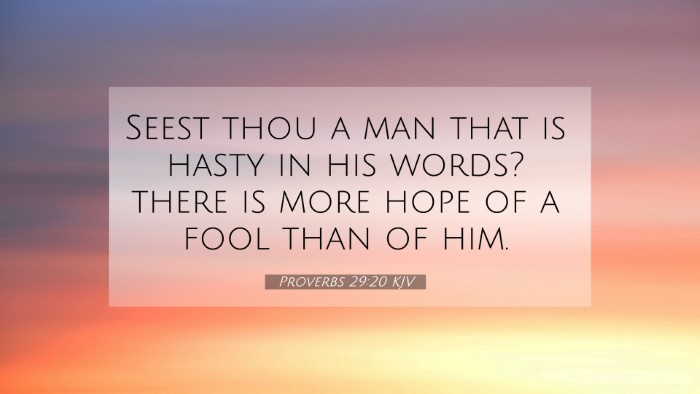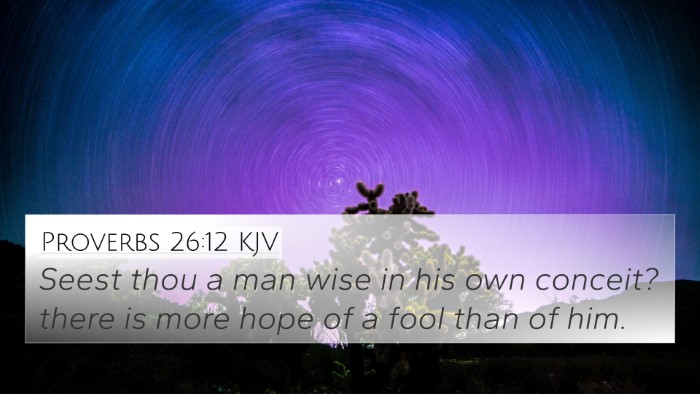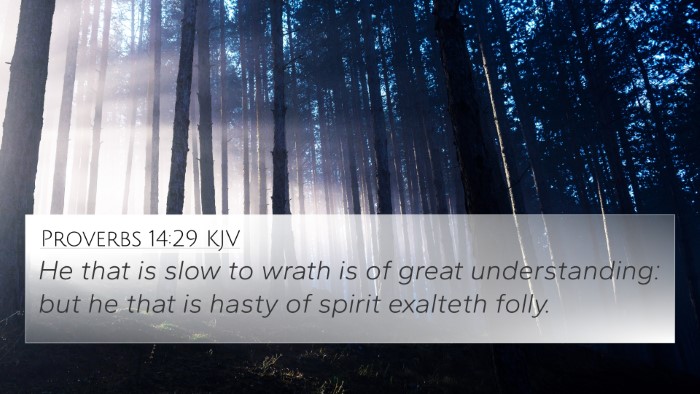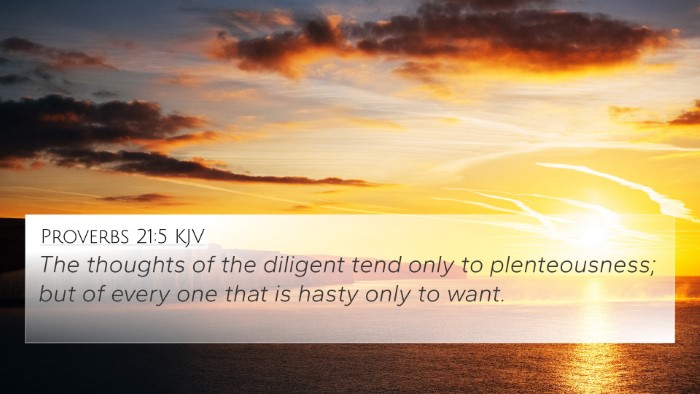Understanding Proverbs 29:20
Proverbs 29:20 states: "Seest thou a man that is hasty in his words? there is more hope of a fool than of him." This verse serves as a caution against impulsiveness in speech and highlights the importance of words in determining our character and relationships.
Summary of Insights from Public Domain Commentaries
This verse has been explored by several prominent commentators, each offering valuable insights into its meaning and implications:
-
Matthew Henry:
Henry emphasizes the folly of being hasty in speech, suggesting that such a tendency can lead to misunderstanding and strife. He cautions that a person who is quick to speak may often be driven by emotion rather than reason, ultimately leading to poor judgment.
-
Albert Barnes:
Barnes notes the comparison drawn between the hasty speaker and a fool. He argues that the quick-to-judge individual often lacks wisdom and discernment, which results in decisions that affect both themselves and others negatively.
-
Adam Clarke:
Clarke highlights that this verse not only warns against rashness but also indirectly promotes the value of thoughtful and measured communication. He relates this tendency to broader themes of wisdom and folly found throughout the book of Proverbs.
Thematic Connections
The verse not only stands alone but also connects thematically with various other scriptures. Understanding these connections enriches our interpretation:
- James 1:19: "Wherefore, my beloved brethren, let every man be swift to hear, slow to speak, slow to wrath." - This verse emphasizes the importance of listening over speaking hastily.
- Proverbs 15:28: "The heart of the righteous studieth to answer: but the mouth of the wicked poureth out evil things." - It contrasts the righteous, who reflect before responding, to the wicked, who act impulsively.
- Proverbs 17:27: "He that hath knowledge spareth his words: and a man of understanding is of an excellent spirit." - This reinforces the principle of measured speech.
- Proverbs 18:13: "He that answereth a matter before he heareth it, it is folly and shame unto him." - Highlights the shame associated with ignorance and impulsivity in conversation.
- Proverbs 21:23: "Whoso keepeth his mouth and his tongue keepeth his soul from troubles." - Champions the need for self-restraint in speech.
- Ecclesiastes 5:2: "Be not rash with your mouth, and let not your heart be hasty to utter any thing before God: for God is in heaven, and thou upon earth: therefore let thy words be few." - Compares human speech to divine authority, cautioning about hasty declarations.
- Proverbs 10:19: "In the multitude of words there wanteth not sin: but he that refraineth his lips is wise." - Encourages brevity and thoughtfulness in speech.
Conclusion
Proverbs 29:20 cautions against the folly of hasty words and emphasizes the value of wisdom in communication. By cross-referencing this verse with others in Scripture, we can deepen our understanding of the Biblical perspective on speech, wisdom, and character. The connections drawn serve as a powerful reminder of our accountability in the words we choose to express.








